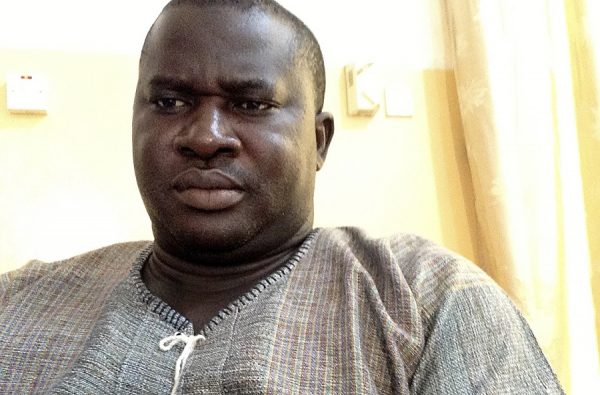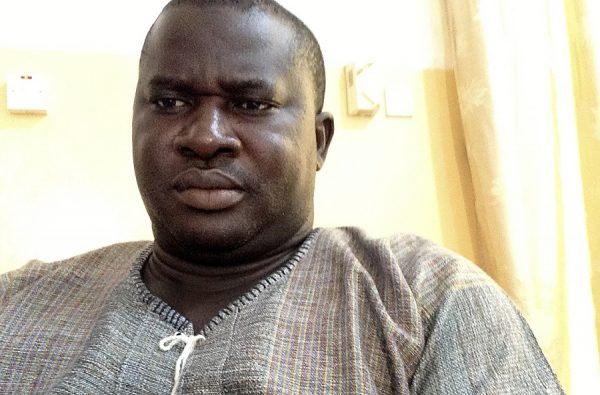
This our society must engage in serious conversation with itself, a special kind of soul searching or ‘introspective retrospection’, both about its present and future, about what society it really wants to build and what the building blocks must be.
This conversation must be very serious, engaging, honest, truthful, candid, thorough, broader and all-inclusive. We cannot build a ‘New Gambia’ and ‘New Gambian’ without such a conversation. The moth eaten cliché ‘we have been living together without a problem’ or ‘we are the Smiling Coast’ has been, of late, shown to be a farce.
No society develops that is afraid to either confront its past or examines its inner workings and value system, and its political, economic, social and cultural systems.
No society progresses where truth is anathema or honesty and honest men and women lampooned and castigated as ‘too difficult’.
No people progress upwards who are afraid to confront the contradictions and antagonisms in their society.
We ended a regime and established a Government…. But the jury is out if we have settled the contradictions between that past and the present; if the present now predominates over that past in both principles and practice, and in systems, processes, standards, institutions and methods of governance.
Not sure if we have ever had a serious national conversation about the type of governance system we really want.
The furore we had when the CRC realized its first draft, the palpable Cabinet ‘anger’ on some key provisions and the Sword of Damocles which hangs over the draft 2020 Constitution is somewhat testimony that we aren’t so much decided on what government and system we want to establish for ourselves or future we want to bequeath to posterity.
Constitutional monarchy to a constitutional republic, when we gave ourselves a Constitution…. Fundamental human rights lying side by side with personal law which governs marriage, inheritance and divorce for the people they apply, a certain unease. Some certain aspects of the Sharia lying side by side with common law provisions.
What must be the place of religion in a Constitution apart from the guaranteeing of right to exercise one’s religion freely, in a society which is predominantly Muslim but not an Islamic State and a governance system which is not based on Sharia? The debate rages on, unresolved.
Then the whole raging debate about and conflict between culture and globalization, modernity and tradition, cultural relativism and universalism, religion and culture, religion and modernity.
‘This is against our culture’ is a refrain we commonly shout when there is conflict or pseudo-conflict or proxy war between ‘our culture’ and ‘their culture’, Gambian and the outside world… ‘What is a Gambian culture?’ I asked a young guy…. He was at a loss…. ‘Is there anything like a Gambian culture?’ he asked me in bewilderment…. He knows about his tribal or ethno-linguistic culture and could differentiate between his and others, even if there are similarities and even if most have morphed…. Is there anything like a Gambian culture? Monolithic, definite, definable? Mandinka, Jola, Fula, Krio, Sarahule, Manjako, Ollof, Bainunka, Karoninka, etc all have their distinct cultures even if some have morphed and create either a pot-pourri or or a mosaic.
Some traditional practices, beliefs and attitudes are common to other tribes and alien to some. And yes, culture is not just about ‘cultural or traditional practices and beliefs’; it is also about ‘values and ideals’…. May be in the latter there is meeting of minds amongst most of, or all, the tribes or ethno-linguistic groups…. Is there a national agreement on what a Gambia culture is? National dress? National food? Could there ever be agreement on any of these? Could the imposition of any be seen as ‘cultural imperialism’ by others?
Bigger contradiction: sometimes the people who shout ‘this is against my culture’ are rarely cultural or practice their culture…. They are torn between ‘modernity or westernization’ and their culture… They converse and teach discipline to their children in English Language, the home’s lingua franca. And since language is first repository of culture, it is the first to be killed by these shouters.
Anyone with poor proficiency in English Language or unable to use a fork and nice or dress in their kind of way is ‘too cultural’, a euphemism for ‘backwardness’ and incivility. They shun anything Gambian or cultural- food, dress, attitude, language, beliefs, values, behaviours. These contradictions remain unresolved at that level…
Then there is the palpable antagonism between religion and certain cultural practices and beliefs…. When the chips are down the people who shout ‘this is unacceptable in my religion’ take cover in their cultural beliefs and practices and turn a blind eye to their religious injunction(s).
‘Nna aado leng’ is the justification. We can be ‘Islamic’ and ‘cultural’, when convenient. Often a contradiction, sometimes a conflict. Why do we think the caste system survives to this day? Why do we think sorcery or black magic lives on?
The antagonism between ‘cultural relativism’ and ‘universalism’ in human rights is all too apparent. It is about ‘we can take some but not those that conflict with our culture or religion’…. And so the cry of cultural imperialism is heard when the universalists insist on ‘take all or nothing’.
The battle is not just on LGBT matters but more rancorous on issues of gender equity and equality, on certain children’s rights. The fuss is never about the other fundamental human rights…. And this ‘rivalry’ rages on, sometimes unending, sometimes in conflict….
There is high time we held national conversations and dialogues on these contradictions and antagonisms.
Culture and religion define the life of the people. And there is modernism and international value system and international human rights agreements to which we are party to.
How do we make our culture immune to these external stimuli? Can what we call a ‘Gambian culture’ remain unchanged, static despite the interactions it is having with the rest of the world?
What Gambia do we want? What value system do we establish? How do we tackle the apparent contradictions and antagonisms in our society? Can we? Will we? Or it is ‘don’t rock the boat’ or ‘we have been living together for centuries without any problem’? The writings are clear…. I refuse to be an ostrich.






Very well said. The hypocrisy, the double standard is palpable. As for the place of religion in a constitution, the CRC Act 2017 made it clear thg that the Gambia shall remain secular. The CRC blatantly failed to ensure this. They deliberately went the polar opposite, by establishing Sharia law, for what I believe is for their personal religious and political interests over and against the national interest.